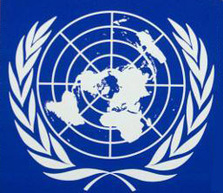By Janet Ekstract
UNITED NATIONS (TURKISH JOURNAL) – The United Nations has reported on what is known as ‘modern slavery’ and UN Special Rapporteur Urmila Bhoola, said that over 40 million people are currently enslaved throughout the world – a quarter of those are children.
What will be particularly shocking to many is that more than 60 percent of forced labor originates in the private sector, Bhoola explained. The majority of those affected are women and girls with 98 percent having experienced some form of sexual violence.
Special Rapporteur Bhoola explained that much of this is due to shifting demographics and environmental degradation as well as migration.
Bhoola said that this trend “must serve as a wake-up call.”
Meanwhile, the International Labor Organization (ILO) reports that 24.9 million people are in forced labor worldwide and that 15.4 million live in forced marriages.
This, after Member States four years ago committed to the UN’s Sustainable Development Goals (SDGs) with relevant targets of 5.2 and 8.7 – whose goal is to eliminate sex trafficking, end violence against women and eradicate modern slavery.
Many analysts and experts have said this can’t be accomplished without first changing mindsets among communities, societies, governments, boys and men. The problem is also exacerbated by the most devastating climate conflict of this century.
Experts report the following: “In the wake of climate change, people may lose their livelihoods, young people who don’t have access to decent work may migrate through unsafe channels and changes in the world of work, such as automation, may push already vulnerable people out of their jobs, all of which could increase people’s vulnerability to slavery.
Investigators for the NGO Human Rights Watch explained that even survivors of slavery often have major difficulties even after escaping its grip. In some societies, experts commented that victims could face stigma or blame. They added that “slavery leads to increased public health costs, productivity losses, negative environmental externalities and lost income.”
Bhoola is urging Member States to take immediate action: “We cannot afford to stand by while more and more people are driven into forced labor, servile marriage or child labor,” she said.
Moving ahead, Bhoola emphasized that youth approaching working age are put into an even more dire situation: “By 2030, some 85 percent of the more than 25 million young people entering the labor force, globally will be in developing and emerging countries.”
Bhoola said in order to prepare for the future, “it is imperative” that anti-slavery efforts are “systematic, scientific, strategic, sustainable, survivor-informed, and smart,” she stressed.
Unfortunately, current efforts to eradicate slavery in the 21st century are losing traction and as Bhoola cautioned, States and businesses “must take ore decisive action to end slavery.” She summed it up like this: “by committing more resources to this effort and by adopting and implementing public policies which address contemporary forms of slavery effectively,” the road to eliminating modern day slavery will be a lot smoother and more efficient.




